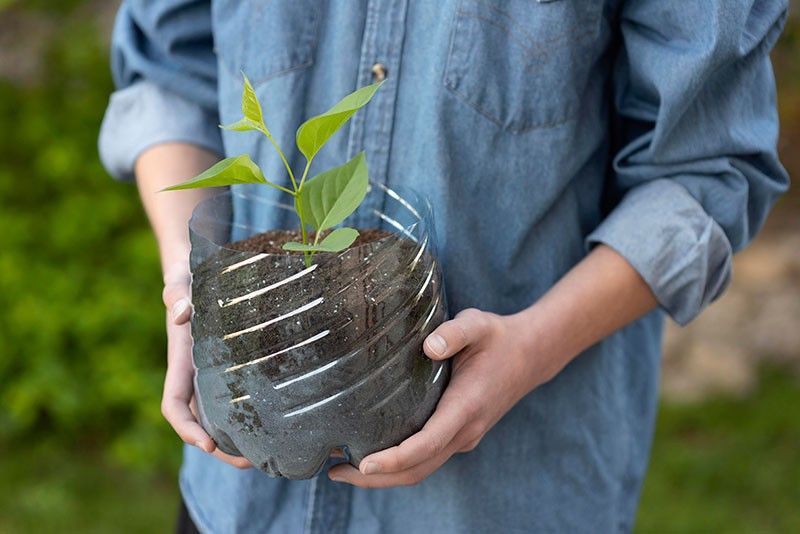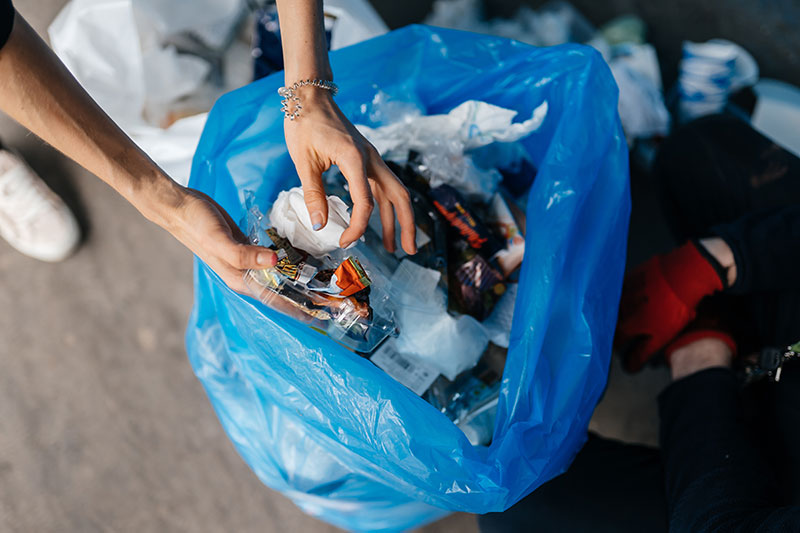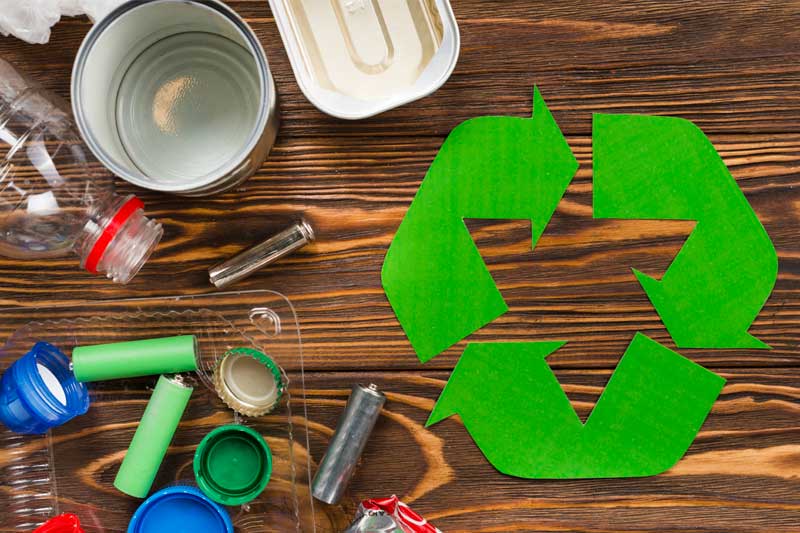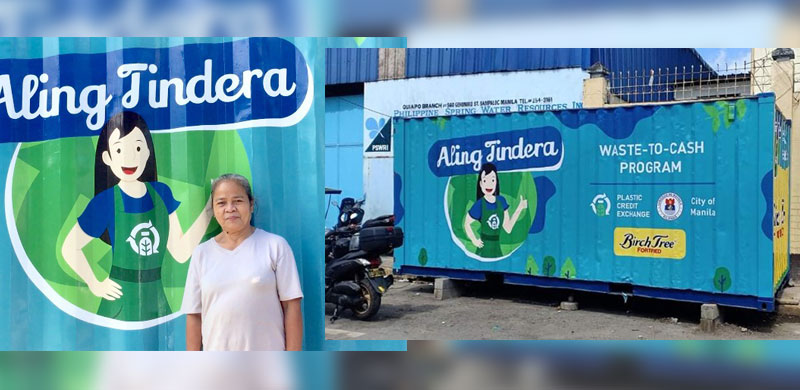What is plastic offsetting? A homegrown Filipino company’s journey toward plastic neutrality

MANILA, Philippines — Together with climate change, plastic pollution has become one of the world’s pressing environment issues. Calls addressed to both the public and private sectors have been raised, asking for material change for good for the country and the planet.
As the Philippine government works towards developing legislation around plastic pollution and proper waste management, businesses are in parallel also heeding calls for ethical and environment-friendly practices by acknowledging their impacts and moving forward to a kinder future for the planet.
Multinational companies are laying down environmental, social and governance (ESG) frameworks to mitigate impact on the environment, care for their people and communities, and turn to more sustainable practices.
In this regard, Century Pacific Food Inc. (CNPF) has been a pioneer in the country, building foundations to its ESG framework prior to the pandemic. In the last three years, the leading food and beverage company has already achieved plastic neutrality as part of its ESG efforts.
Addressing the country’s plastic pollution

A recent 2021 report showed that Pasig River alone accounts for 6.4% of global river plastics. Previously ranked third from a 2015 report, the Philippines moves to the top of the list of worst ocean offenders, contributing more than 36% of plastic found in the ocean.
Our World in Data reports that the Philippines emits 3.3kg of plastic waste into the oceans per capita, most of which is mismanaged and leaks into rivers and the environment.
In order to address plastic waste from leaking into our oceans, a systemic approach to reducing plastic waste and properly managing it must be taken. This systemic approach includes working with government, the private entity, environmental groups, industry experts and consumers to each play a role in addressing the plastic pollution problem.
For its part, CNPF has taken the lead by becoming one of the first FMCG to address its plastic footprint.
“Concern over plastic pollution has been spurred globally in recent years, including in the Philippines. Around 300 million tons of plastic are produced every year, according to the Worldwide Fund for Nature, with much of it ending up in landfills or polluting the seas, in what has become a growing international crisis,” CNPF Executive Chairman Christopher Po told Philstar.com via email interview.
For this matter, CNPF finds alternative in plastic offsetting, and in the last two years, has received plastic neutrality certifications for all its brands that uses flexible packaging namely Angel Coffee Creamer, Argentina, Coco Mama, Century Quality Bangus, Fresca Tuna, Hunt's, Home Pride, Swift, Wow and Birch Tree.
This means that these brands have successfully offset their plastic footprint from July 1, 2019 to June 30, 2020 by recovering an equivalent amount of plastic waste away from leaking into nature.
A partnership with non-profit Plastic Credit Exchange (PCX) ensures that the plastic credits are processed safely back into the circular economy.
“Our goal is to build a rigorous, ethical, environmentally-sound marketplace that enables companies to purchase certified plastic credits to offset the plastic waste they cannot eliminate from their packaging and the plastic waste they've already put out into the world,” Meg Santos, sustainability campaign manager at PCX, told Philstar.com in a separate interview.
Shakey’s Pizza Asia Ventures, Inc. (PIZZA), one of the country’s leading full-service chains also under Century Pacific Group, is likewise offsetting its plastic usage.
PIZZA has been partnering with PCX since 2019, continuing to offset its plastic usage despite challenging circumstances for the entire restaurant industry. This initiative, along with its recycling and packaging re-engineering programs, serves as a testament to PIZZA’s commitment to mitigate its plastic footprint.
What is plastic offsetting?

“Offsetting is the act of cleaning up any plastic waste that a company produces which may find it’s way into the environment,” Santos said.
In recent years, plastic offsetting has become an important part of a broad set of solutions that companies employ to ensure that their post-consumer plastic does not get stuck in landfills or leak into nature.
“PCX stresses the importance that plastic offsetting should not be an excuse to pollute. Instead, we encourage companies to undertake every effort to reduce any non-essential plastic from their products; reuse and recycle material whenever and wherever possible; and only that which is left should be responsibly offset,” Santos explained.
“The PCX ecosystem includes processors that are vetted and accredited in accordance to the Plastic Pollution Reduction Standard. This way, we ensure that the plastic waste collected is processed in an environmentally sound manner,” she continued.
Waste that can be recycled and upcycled are sent to the appropriate partners, while non-recyclable plastic waste is sent to co-processing partners to be used as an alternative fuel to coal in cement production. Non-recyclable plastic waste includes plastic sachets, which have no market value and are dubbed end-of-life plastic.
The representative furthered that PCX plastic offsets are subject to third-party auditors to avoid misrepresentations, as well as false claims. Results are entered into the PCX blockchain ledger for security, transparency and verification of claims. This blockchain ledger will be made available to the public.
Commitment to sustainability

For its part, CNPF agrees that plastic offsetting is indeed not the perfect solution, but nonetheless beneficial.
“What it helps with is in mitigating the environmental impact of plastic use—especially during this time where alternatives to plastic are still too premium for consumers to afford,” Po said.
Another benefit is that it keeps plastic usage top of mind. The CNPF executive chairman noted: “As such, more initiatives to reduce plastic waste are being developed and implemented. We now support a waste-to-cash program which incentivizes women-owned sari-sari stores to become collection points for post-consumer plastic waste.”
As part of this livelihood program dubbed Aling Tindera, the company has installed two purposefully designed 10 to 20-foot containers with 5,000 to 10,000 kg capacity for post-consumer plastic waste collection at Barangays 432 and Baseco Port in Manila.
Residents are encouraged to sell post-consumer plastic at sari-sari stores. The women micro-entrepreneurs buy the plastic wastes at predetermined price per kilogram. Once the containers are filled, partners buy the collected plastic at a markup.
“Through this program, both sari-sari store owners and community members are given the opportunity to not only make extra income, but are also empowered to depollute the environment around them,” Po enthused.
“We hope that our journey towards plastic neutrality, along with many other companies who are part of the cause, can spread awareness and inspire other businesses,” he added.
All of this is part of CNPF’s bigger commitment to sustainability, especially as a leader in the marine industry. The company is behind household brands Century Tuna and 555 Sardines.
“Fundamentally, what we want is to change our company’s culture so that the sustainability mindset becomes ingrained in how we do business in the long run,” Po concluded.




















